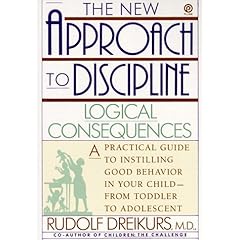 When Richard was almost four, I happened to be reading Logical Consequences by Rudolf Dreikurs and Loren Grey one evening as it was getting on time for the kids to get ready for bed and I decided to try the approach. So, as we were getting ready to get ready, I asked Richard, as per instructions, "It's time to put your toys away. Would you like to put them on the shelf or would you rather I put them in the closet?"
When Richard was almost four, I happened to be reading Logical Consequences by Rudolf Dreikurs and Loren Grey one evening as it was getting on time for the kids to get ready for bed and I decided to try the approach. So, as we were getting ready to get ready, I asked Richard, as per instructions, "It's time to put your toys away. Would you like to put them on the shelf or would you rather I put them in the closet?"Being perfectly willing to let me do the work, he answered, "You put them away." And so, I got out a box, picked up all the toys on the floor, and put them on the closet shelf. The next day he still had lots of toys to play with, but he did ask for one or two of the ones on the shelf. I explained that they were on the shelf for a week, showed him how to count that off on the calendar, and went about my business. That evening, again I asked what he wanted to do, and again he wanted me to put them on the shelf.
 However, now he had not only his very favorite toys, but also his next to the favorite toys in the closet. So on the next day, he asked for a number of toys. Again, we worked it out on the calendar. Again, he accepted it easily.
However, now he had not only his very favorite toys, but also his next to the favorite toys in the closet. So on the next day, he asked for a number of toys. Again, we worked it out on the calendar. Again, he accepted it easily.That evening, when I asked him, I got as far as, "Would you like to " and he broke in with "I'll put them on the shelf." I don't think he ever had me put his toys away again. And, the wonderful thing about it was that he never complained about the toys in the closet.*
Having discovered this miracle answer to discipline, I used it often. And because my children always got to choose*** they did not resist or resent. They could see the logical connection between the choice they made and the consequence, whether that was what they wanted or not. And, because I always asked if they wanted this or that, and never said, "If you don't put them away, I'll put them in the closet (or whatever the choice was)", and always had a logical connection between the choices, we had very few problems.
As they grew older, I stopped offering choices and simply delivered the consequence. When Richard**** was 12, his Uncle Forrest, attempting to be helpful, told him that he was the man of the family. And Richard observed that his grandfather and his uncle didn't pick up their own dinner dishes and put them in the dish washer, like we did. So, having picked up his dishes without fail for ten years, one night he left them on the table. A simple, "Richard, your dishes are still on the table." took care of it that night. But, three nights later, he did it again. This time I didn't say anything. I picked up his dishes and put them in the frig (didn't want the little bugger to get salmonella, after all) and the next morning served his French toast on his dirty dishes. I never had to say anything. It is obvious -- if you don't pick up your dishes, they don't get washed. I didn't say anything. He didn't say anything. But, to this day, you almost have to constrain him to keep him from taking his dirty dishes out to restaurant kitchens.
* It helps with keeping a child's room clean if you use a little Montessori as well as a little Dreikurs. So, my kids never had toy boxes. ** They had shelves at their height. Toys with parts were in containers, and since the box the toys came in would fall apart rather quickly, they had baskets and other containers that wouldn't. And we rotated toys in and out of the room so they had a manageable number. They got to choose what they wanted out at any time, we rotated right after finals when they were little and I was going to school. Every time we would rotate, there were all of those toys they hadn't played with for an entire college semester -- it was like Christmas.
** Toy boxes worked when children had many fewer toys than they do these days, or servants. To get a feel for how unwieldy a toy box is for a child, think about what life would be like if you had no cupboards or drawers or canisters or shelves in the kitchen. If everything had to go in a the box your refrigerator came in. Loose. Once you opened the flour or the rice, the rest of the bag was just dumped in. Everything in your kitchen. In one box. Want to fry an egg? Not only do you have to take out everything you are going to use, but all of the things you aren't going to use between the top and where it has filtered down. Then put it all back, repeat when you need to do something else, put it all back. How long would your kitchen stay tidy?
*** If they had no choice of whether they were going to do it, such as brushing teeth, they got a choice of where or when -- would you rather brush your teeth in the bathroom or the kitchen, before or after your bath?
**** I used to tell lots of these stories to my parenting classes, since concrete examples help teach the concept. Once I noticed that they were almost all about Richard. I mentioned it to Julie, who answered, "I always watched what happened when Richard did something new to find out if it was allowed or not." So, almost all of my Julie discipline stories are about things Richard never did or which were not an issue with him.
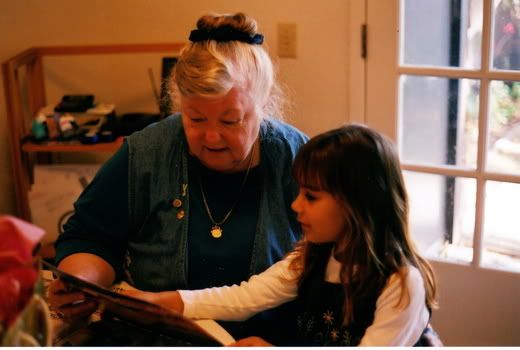
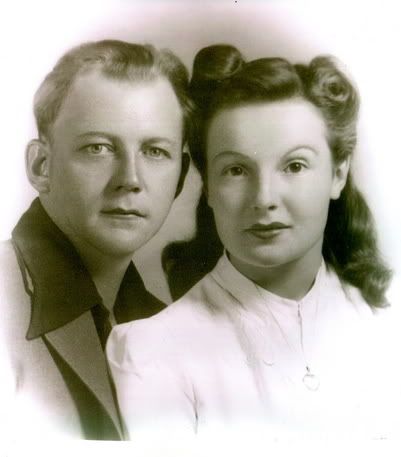

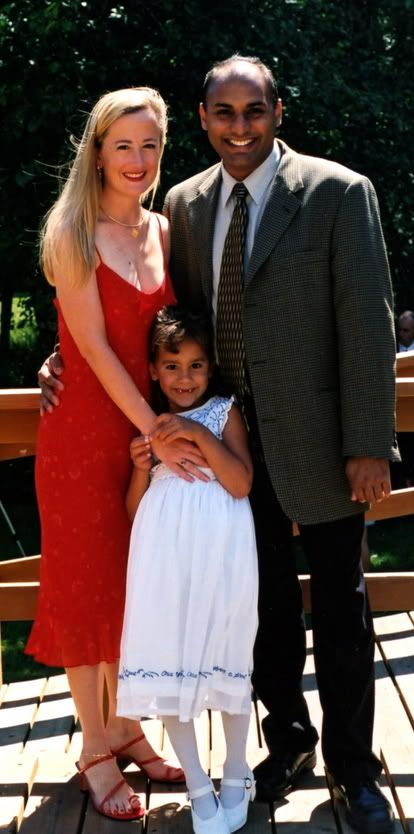
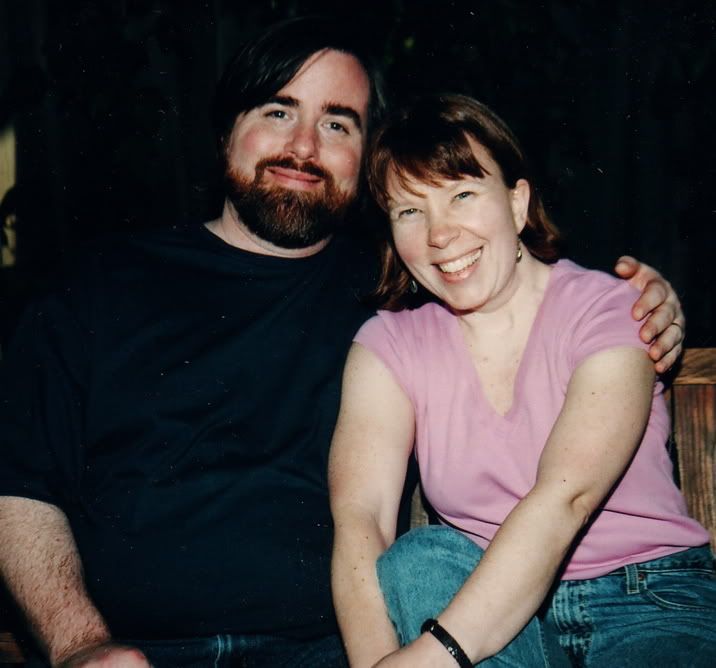













5 comments:
I think I shall go down to my libary and hunt that book down!
I wish I had had your insight when mine were growing up.
I do have a house rule for my grandchildren
"You get it out--you put it up"
Works most of the time with prodding.
Dang..I wish I had access to your wisdom when I raised my son. I did seek help when he would get out of control..and learned how to quell his outbursts by sitting on him until he calmed down..
Well, it was more like straddling him..while I didn't pay attention to his screaming..I read a book or watched what was on tv.
I only had to do that a couple of times..then I would just quietly ask him if he needed a 'take down' as I called it..and he would calm down immediately.
That sounds related to advice in my favorite book on raising children, "How to Talk so Kids will Listen and Listen so Kids will Talk." One section suggests offering a child two alternatives (that are acceptable to you, the parent) and then following through. "Would you rather do your math homework first, or your history homework?" "Let's clean the house together. Would you rather dust the living room or sweep the kitchen?" That sort of thing. Great book, I highly recommend it.
Another great strategy from that book is to show that you understand how a child feels: "I imagine you're disappointed that you can't go outside to play in the rain"; "It must be frustrating..."; "I can see that you're angry about..."; etc.. Not only are you giving a label to feelings that a young child may not know a word for, you are showing that what they think is important, even if you can't indulge their whims at the moment.
Bridget,
That is related. How to Talk so Kids . . . was written by two students of Haim Ginott, the author or "Between Parent and Child". When I taught parenting, the Dreikurs book and How to Talk were the two books I gave my students.
It is very important to let children know that you value what they think even when they can't have what they want.
Post a Comment